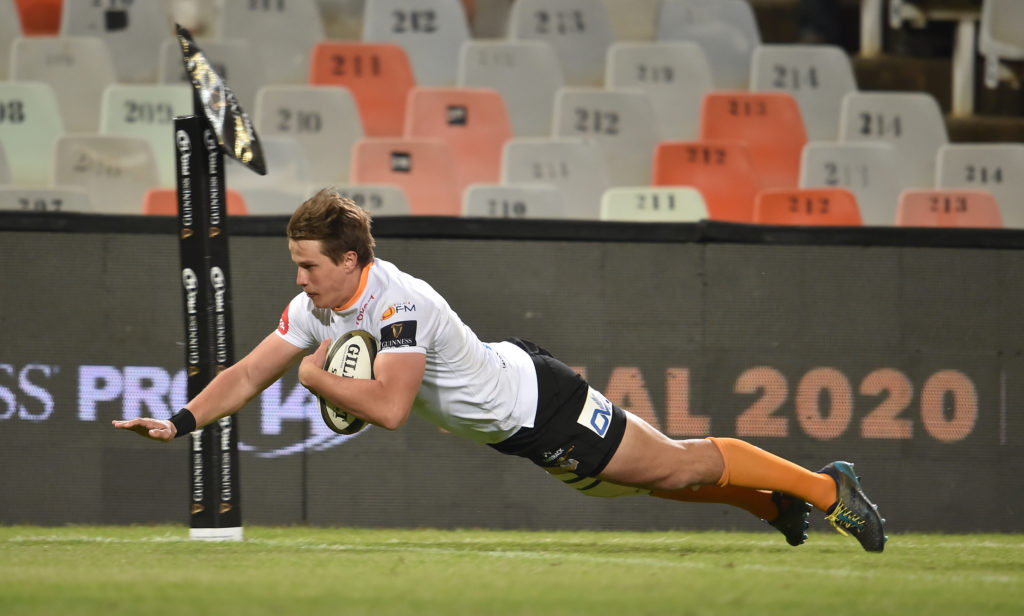Cheetahs centre William Small-Smith has announced his retirement from rugby due to the effects of a serious head injury.
The 29-year-old Small-Smith, who played centre and wing for the Cheetahs, announced that he will be hanging up his boots following a 10-year professional career.
After sustaining an injury during a Currie Cup match against the Sharks on 27 December 2020 in Bloemfontein, he has been medically advised to retire from from the game.
The utility back joined Free State in 2016 and represented the Cheetahs in 91 matches (25 Currie Cup caps, five Super Rugby Unlocked appearances, 47 PRO14 games and 14 Super Rugby caps). He made his professional debut for the Blue Bulls at U21 level in 2011 and represented the side in seven Super Rugby and 15 Currie Cup matches, bringing his career total to 113 professional caps.
Small-Smith represented South Africa on the international platform, receiving gold medals as part of the Springboks Sevens team and the Junior Springboks.
‘William was one of the senior statesmen in the Cheetah side. He is a leader of men and had a natural feel for the game,’ coach Hawies Fourie said. ‘He had a great influence on the team and on behalf of Free State Rugby, we thank him for his loyalty. We wish him and his family only the very best for the future.’
Commenting on his retirement, William Small-Smith made the following statement:
‘I have been a Cheetah from a very young age. It has been my privilege to represent them on and off the field.
‘Together with a group of friends, I have been fighting for a cause greater than myself. This was my daily labour and I have loved every minute of it!
‘Thus, it is with great sadness, that because of medical reasons, the time has come for me to put an end to my rugby career.
‘Every time you take the field, a player accepts a normal amount of risk. If you do not have peace with that risk, you hesitate or doubt, chances are that you may be a second too slow or one action too late.
‘My goal was always to win the respect of my team members and to ensure they know that I have their backs. I cannot with a good conscience return to the rugby field and deliver the performance I would like to. That risk for me has just grown too big, taking into consideration my long-term health and the wellbeing of my family.
‘I have been fortunate enough to work with leaders in the field of concussion, Dr Patricios, Mrs Brink and Mrs de Jong, and they have helped me recover to the extent that I will not suffer further symptoms going forward. Nevertheless, rugby is a contact sport, and my ability to take contact and put my body on the line as any team member does, would put me at a high risk of permanent injury.
‘I would like to thank the Cheetahs management, their medical team, coach Hawies and his fellow coaches and all the players.
‘Every day I laced up my boots and ran onto the field with you guys was an honour and I will forever keep it close to my heart. It was about how we did it and with whom we did it that made the game worthwhile. Rugby was the vehicle that gave us a united cause.
‘My fondest memories are about the people I shared this journey with, and to every one of you that played a part in my rugby career, I am truly grateful. I will continue to wear my Cheetah badge daily, but now as a supporter and lifelong friend.’
Photo: Johan Pretorius/Gallo Images





